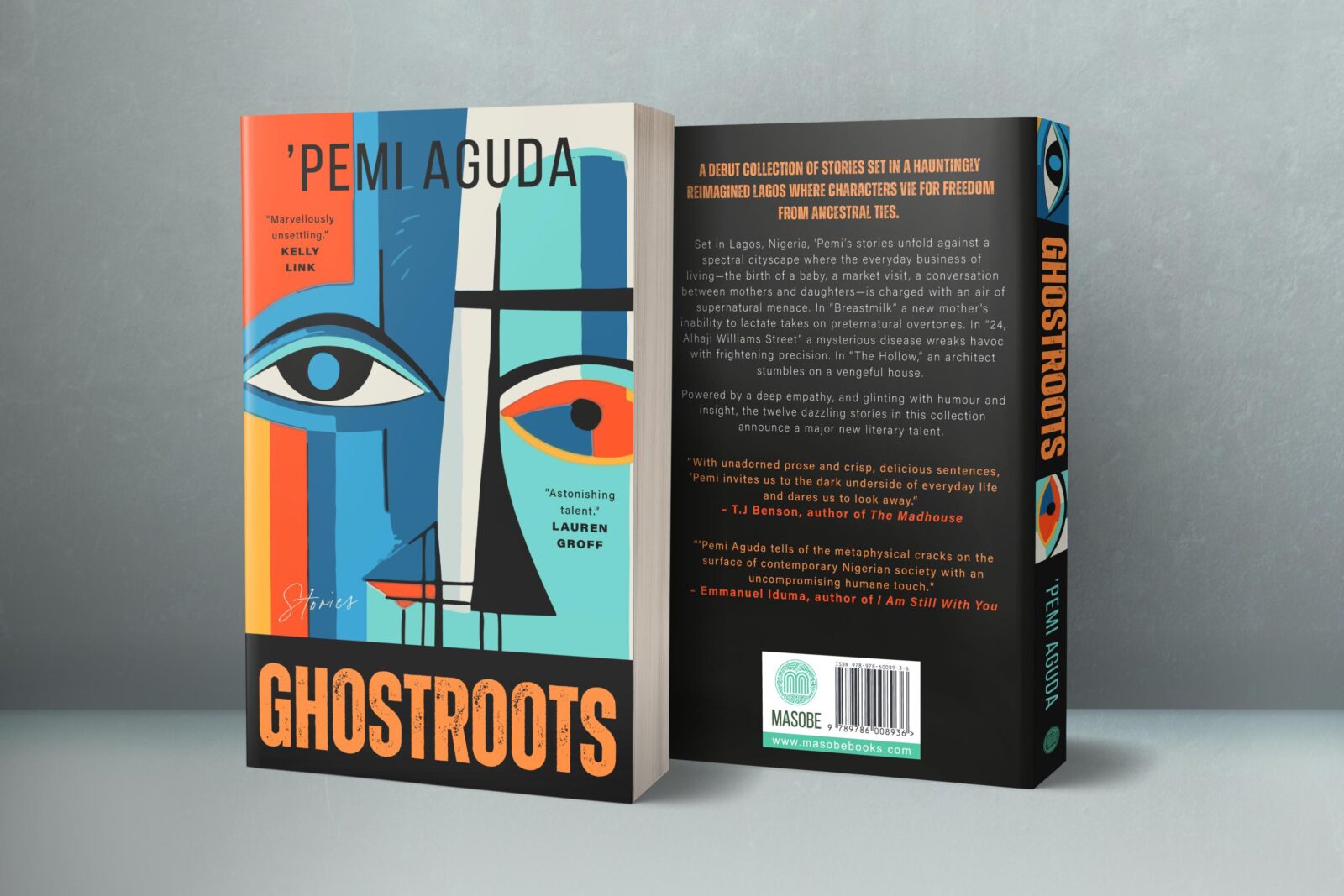
’Pemi Aguda’s short stories evoke the chaos, smells, corruption and supernatural influences in Nigeria’s biggest city
The Nigerian-American novelist Teju Cole once described Lagos as a city under the spell of “magic and malefaction”. It is a view endorsed in Ghostroots, a thrilling and disturbing new collection of short stories by ’Pemi Aguda.
The author, who grew up in Lagos and is a graduate of the writers’ programme at the University of Michigan, details a sprawling metropolis riven by crime, corruption and poverty but also infused with the nebulous presence of supernatural influences.
In Aguda’s fiction, unexplained powers can be both benign and malign, sometimes at the same time. In some stories, their motivations are good but their impact devastating; in others, they act as messengers of divine retribution. But these ghosts, spirit jesters, unaccountable pestilences and eerie premonitions feel like the inevitable result of an environment in disarray, a place in which power cuts are routine, masculinity is malevolent and Pentecostal ministers hold sway with parables of salvation.
In the opening story, “Manifest”, readers are introduced to the daily reality of life in Nigeria’s most populous city, as an unnamed young woman reads the headlines in the local newspapers: “Woman Cuts Lover’s Penis Off in Rage of Jealousy. Man Beats Daughter to Death for Skipping School. Community in Outskirts of Lagos Hack Thief to Pieces.” For the woman, home offers little security. As she herself begins to commit malicious acts — flooding a bathroom, killing a friend’s puppy — she fears that she is the reincarnation of her own wicked, long dead grandmother.
Aguda’s Lagos is a stultifying ecosystem of short-term schemes, low-paid labour and women overwhelmed by child rearing
It is a telling start to the collection. In Aguda’s stories, families are more likely to be the problem than the answer. In “Breastmilk”, a woman has conflicting emotions about giving birth to a baby boy. “My heart broke a little. A son who could grow up to become a man, a man who might hurt other people no matter how well I raise him because a man is a man, even when he is the best man.” The mother’s inability to conjure milk from her breast is evidence of this barrier between the sexes and, in her mind, linked to her husband’s infidelity. That he feels guilt over the betrayal marks him out as the best of men.
There are various literary touchpoints to Aguda’s narratives, ranging from the English tradition of speculative weird fiction, especially the unsettling spectres of MR James’s shockers, to the contemporary fairy tales of Angela Carter.
In “The Hollow”, echoes of Stephen King resound in a puzzle-box story of a building. Arit, an ambitious trainee architect with a brain “simmering with solutions”, surveys a house that makes no sense: the walls and roofs do not add up to the sum of her blueprints. Walking through its rooms, “a fear clunks up her ribs, puncturing her breaths, a fear that nothing is real and everything is upside down and elementally wrong.” The secret of its design lies in its inception as a haven from an abusive husband.
Aguda’s Lagos is a stultifying ecosystem of short-term schemes, low-paid labour, women overwhelmed by the practicalities of child rearing and men with “syrupy tongues”. The rhythms of Nigerian Pidgin heard on the streets — with its singsong blend of English and staccato interjections — are well captured; as is the pungent gooiness of bodies crammed into its domestic and work spaces. A traumatised mother takes on an “animal smell” while the toe of a destitute teenager is “black on the inside”.
The city, notes one weary resident, is “bright and glittering from a distance, nothing but grime and sweat up close”. In several of the stories, the paranormal offers a welcome glimpse of a happier alternative. In one, a ghost market appears at dusk, run by chattering women wrapped in vibrant indigo Ankara dresses, offering “overflowing baskets of tatase peppers and onions, bright orange carrots and deep green okras” on their lantern-lit stalls.
Aguda stirs her cauldron of social criticism, feminism, structural invention and grotesque gothic twists into a triumph of genre-bending storytelling, a kind of African uncanny all of her own.
Ghostroots by ’Pemi Aguda Virago £16.99, 224 pages
Review written by Christian House
